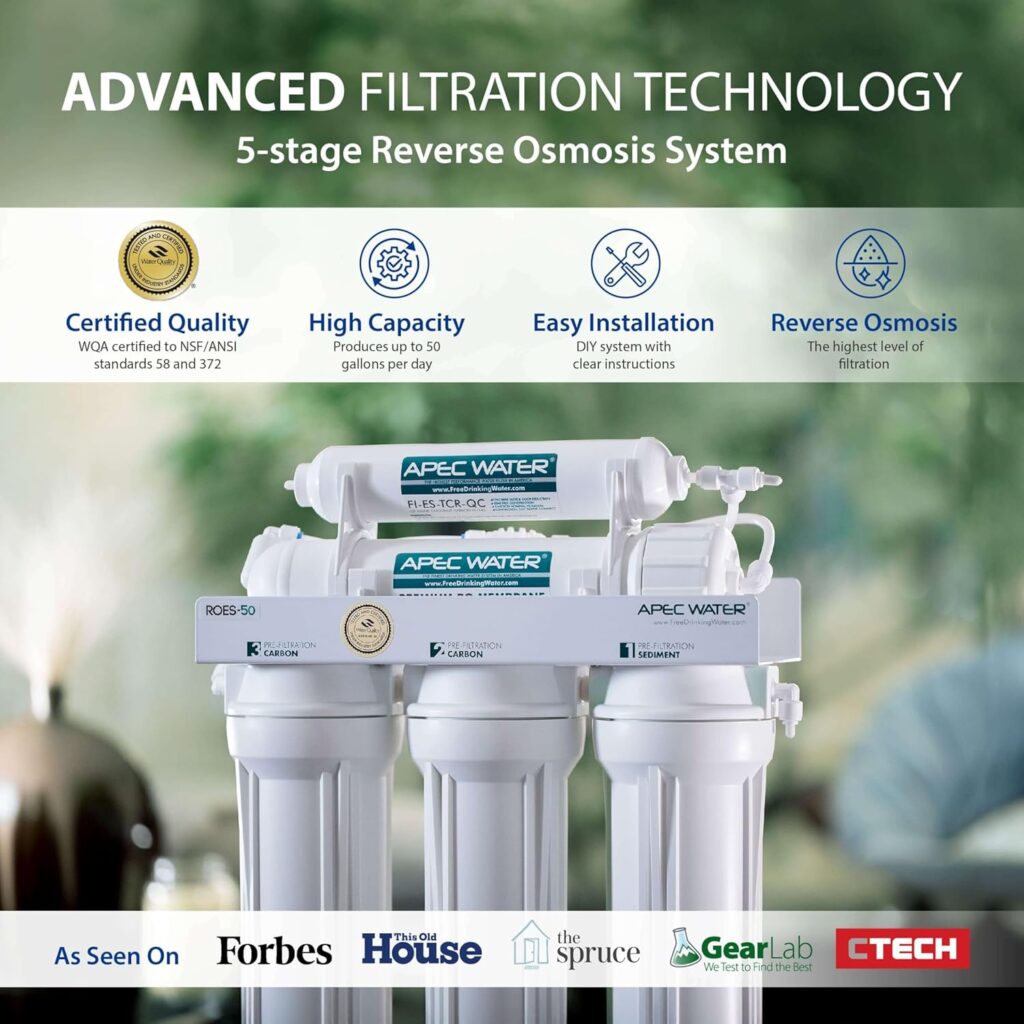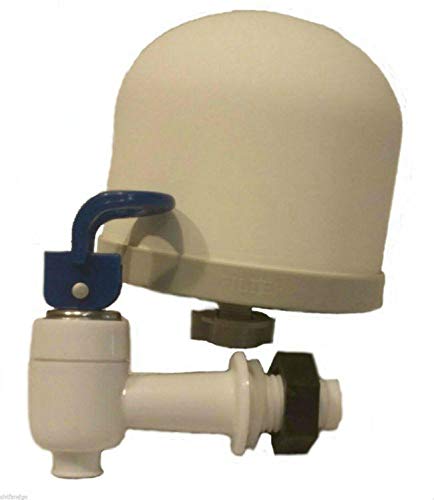When you’re living off the grid, one of the most critical things you’ll need is a reliable source of clean water. Without the convenience of municipal water systems, you have to be proactive in making sure that the water you drink, cook with, and use is safe. That means choosing a proper water purification system is an absolute must.
There are many different types of purification systems out there, each suited to various needs and environments. Let’s walk through the main factors to consider when choosing a water purification system, exploring options that will help you make the right decision for off-grid living.
Understanding Your Water Source
The first step to choosing a water purification system is understanding your water source. Are you pulling water from a lake, river, rain, or well? Each of these sources has unique challenges when it comes to filtration.
- Rainwater Collection: Rainwater is often considered one of the cleanest sources available. However, once it touches your roof or storage tank, it can pick up bacteria, dust, and debris. A simple yet effective purification method like a ceramic filter might be enough.
- Groundwater (Well): Well water can vary widely in quality. It might contain bacteria, viruses, chemicals, or heavy metals, depending on the area. Here, you need a comprehensive solution like a UV purifier or a reverse osmosis system.
- Surface Water (Lakes, Rivers, Streams): Water from lakes and rivers can have a lot of contaminants—sediment, bacteria, and even chemical runoff. A multi-stage filter that includes activated carbon, sediment filtration, and UV sterilization could be ideal.
Types of Water Purification Systems
Now that you understand the nature of your water source, it’s time to look at some of the different types of water purification systems that you can use off the grid. Below, you’ll find the most popular and practical options, along with product suggestions to help guide your decision.
1. Gravity-Fed Water Filters
Gravity-fed water filters are excellent for off-grid living, especially if you’re working with rainwater or relatively clean surface water. These systems rely on gravity, meaning they require no electricity—perfect for living without a conventional power source.
Recommended Product: Berkey Gravity-Fed Water Filter
The Big Berkey Gravity-Fed Water Filter is one of the most popular options available. With over 10,000 reviews on Amazon and a 4.7-star rating, it’s highly rated for its ease of use and effectiveness. This system can remove bacteria, parasites, and even heavy metals, making it great for a range of water sources.
The Berkey filter is also highly portable, allowing you to easily carry it around or even take it with you during camping or emergency situations. With a two-filter setup, it can produce 2.25 gallons of clean water at a time, which should be sufficient for a small family living off the grid.
2. UV Water Purification Systems
UV water purifiers are ideal if your water source contains viruses or bacteria. They use ultraviolet light to kill pathogens, making your water microbiologically safe. UV systems work particularly well in tandem with other filtration methods, such as a sediment or carbon filter.
Recommended Product: HQUA-OWS-6 Ultraviolet Water Purifier
The HQUA-OWS-6 UV Water Purifier is highly rated on Amazon, boasting a 4.6-star rating. It requires electricity to function, so if you’re living off-grid, you’ll need to ensure you have a reliable power supply—either through solar panels or a generator. The UV light effectively kills bacteria, viruses, and other microorganisms without altering the water’s taste or introducing chemicals.
3. Reverse Osmosis (RO) Systems
If you’re dealing with a water source that has heavy metals or chemicals, reverse osmosis (RO) might be your best bet. RO systems force water through a semipermeable membrane that removes nearly all contaminants.

Recommended Product: APEC ROES-50 Reverse Osmosis System
The APEC ROES-50 is a great under-sink RO system that removes up to 99% of contaminants, including chlorine, lead, fluoride, arsenic, and more. With a 4.7-star rating on Amazon and thousands of satisfied customers, this system is reliable for off-grid living where chemical contamination is a concern. Keep in mind that RO systems tend to waste water during the process, so pairing it with a rainwater collection system might help balance out this issue.
4. Ceramic Water Filters
Ceramic filters are ideal for filtering out bacteria and other pathogens. They work well for situations where you’re dealing with rainwater or stream water that doesn’t have heavy chemical contamination.
Recommended Product: SHTFandGO Ceramic Water Filter Kit
The SHTFandGO Ceramic Water Filter Kit is an excellent off-grid option. It’s cost-effective, doesn’t require electricity, and can be easily installed on a bucket to make a gravity-fed filter. This filter is capable of removing bacteria and protozoa, ensuring the safety of your water supply.

Factors to Consider When Choosing a Water Purification System
1. Power Source
Off-grid living often means limited access to electricity, so you’ll need to think about how your purification system will be powered. Systems like gravity-fed filters and ceramic filters don’t need electricity, making them ideal for an off-grid situation.
If you opt for something like a UV purifier or an RO system, you’ll need a way to power it. Consider using solar panels or a small generator to keep these systems running effectively. Solar power is a great choice because it integrates well with the sustainability mindset of living off the grid.
2. Portability
When living off the grid, you may need to move locations or carry your system with you for other activities, like camping or extended trips. Systems like the Big Berkey are highly portable and work anywhere, as long as you have gravity to help the water flow through the filters.
3. Filtration Capacity
Consider the amount of water you need to purify daily. Some filters, like the Big Berkey, can handle larger quantities of water and are well-suited for family use, whereas other systems might be better for solo adventurers.
- For larger households, consider a high-capacity system like a reverse osmosis setup combined with a storage tank.
- If you’re a solo traveler, something compact like the LifeStraw Personal Water Filter might be sufficient for your needs. The LifeStraw is also available on Amazon and is well-loved for its portability and ease of use.
4. Maintenance Requirements
Some systems require more maintenance than others. For example:
- Ceramic filters need to be scrubbed regularly to remove buildup and keep them functioning properly.
- Reverse osmosis systems have multiple filters that need to be changed out every six months to a year, depending on your water quality.
If you want a system with minimal maintenance, a gravity-fed filter like the Big Berkey is a great choice, as its filters have a long lifespan and require little maintenance.
Water Quality Testing
No matter which system you choose, it’s a good idea to periodically test your water quality. You can purchase a water testing kit on Amazon, such as the Health Metric Drinking Water Test Kit. These kits will let you check for pH, bacteria, lead, and other contaminants, giving you peace of mind that your purification system is doing its job.
Layering Your Water Purification
For off-grid living, it’s often a good idea to layer different purification methods to maximize safety. For instance, if you’re pulling water from a stream, you could use a sediment filter to remove larger particles, followed by a gravity-fed ceramic filter to remove bacteria, and then a UV purifier to kill any remaining microorganisms.
Layering can make your water as clean as possible, and it’s particularly important if you have a family or if the water source is particularly questionable.
Emergency Backup Options
In an off-grid setup, it’s smart to have an emergency water purification backup. If your main system fails, you don’t want to be without clean water. Consider having a LifeStraw or Sawyer Mini Water Filtration System on hand for such situations.
The Sawyer Mini is another compact, portable water filter that’s highly rated on Amazon. It can filter up to 100,000 gallons of water and is great for emergencies or travel. Having a small, portable filter like this as a backup will ensure that you’re never without options.
Conclusion
Choosing the right water purification system for off-grid living is all about understanding your specific needs and water sources. Gravity-fed systems like the Big Berkey are ideal for portability and ease of use, while reverse osmosis systems are perfect for those needing to remove chemical contaminants. UV purifiers can help eliminate any biological threats, and ceramic filters are perfect for basic purification of rainwater or lightly contaminated sources.
Remember to consider your power availability, the volume of water you need, and your preferred level of maintenance when selecting a system. Off-grid living is all about self-sufficiency and sustainability, so make sure your water purification choice fits well with your overall lifestyle.
Whatever system you choose, make sure to periodically test your water and have an emergency backup method available. With the right purification system in place, you can enjoy clean, safe water and the true freedom of off-grid living.
Disclosure: As an Amazon Associate, I earn from qualifying purchases. This means that if you click on a link to a product on Amazon and make a purchase, I may receive a small commission at no additional cost to you. Thank you for your support!